Vanessa Taylor
Want to read more?
Articles
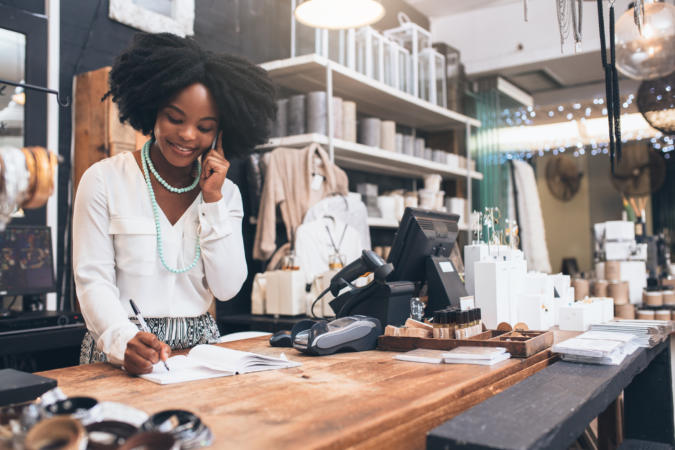
August is set aside to help shed light on Black ownership and encourage others to support Black-owned businesses. This month marks the fifteenth anniversary of the holiday, National Black Business Month , which was started by Frederick E. Jordan and John William Templeton in 2004 . However, supporting Black-owned businesses can be difficult if you don’t know where they are. We’ve rounded up a list of five apps or websites that will help direct you to Black-owned businesses. From restaurants to hair care, there’s a little bit of something for everybody. 1. EatOkra (iOS and Android) If you’re in the mood for food, consider checking out EatOkra. Founded by Anthony and Janique Edwards in 2016, this app helps you locate Black-owned restaurants in 35 different cities, including Washington, D.C., Philadelphia, Minneapolis, Chicago, and more. Don’t get offended if you log on and notice that a beloved Black restaurant from your city is missing. EatOkra relies on users to help direct it to...
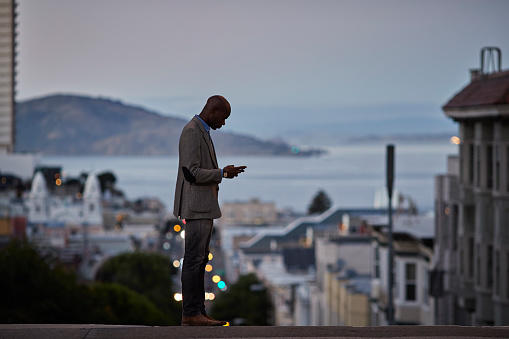
It’s an undeniable fact that Black people drive popular culture and tech is no different. Although a digital divide still persists — Black people are less likely to have access to the internet at home — that doesn’t mean we aren’t online and driving the world’s most popular trends. Take Twitter for example. Black people have dominated the platform since its inception and Black Twitter has been at the center of the biggest cultural moments of the past decade. In fact, as of 2018, of the 67 million users on Twitter, 28 percent were black, according to Nielson . That same study shows other upward digital trends for Black people. The African American podcast audience has skyrocketed 70 percent from 2014-2017, and 73 percent of African Americans 13 and older play video games, an industry notorious for using Black culture without paying the people who create it . Although Black people continue to be one of the main drivers behind the tech industry, we aren’t receiving many of its...
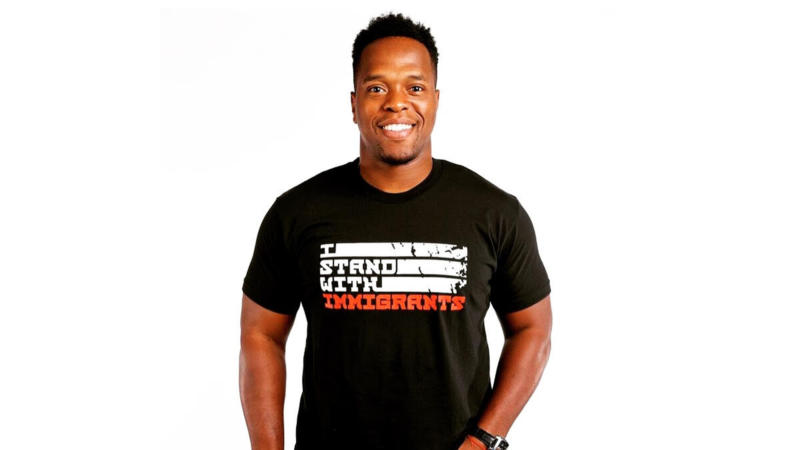
Maintaining connections can be hard, even in the digital age. Many people, especially immigrants, talk about their struggles to remain connected to their home community and its culture. One founder, Ikechi Nwabuisi, is hoping to make all of that easier through The TRiBL Network . Tribl describes itself as a “social network for the diaspora.” It’s a mobile app designed to instantly connect immigrants and multicultural people to their origin communities. The app specifically focuses on African, Caribbean, and South American communities. Comparing itself to “carrying Little Africa in your own pocket” — Tribl uses people’s national identity and cultural affiliations to introduce them to familiar strangers near and abroad. Nwabuisi’s inspiration to launch Tribl came from some of his own personal experiences. “As a first generation Nigerian American I’ve lived most of my life in-between two worlds,” Nwabuisi said. “Seeing the opportunity and talent that existed on both sides made me...
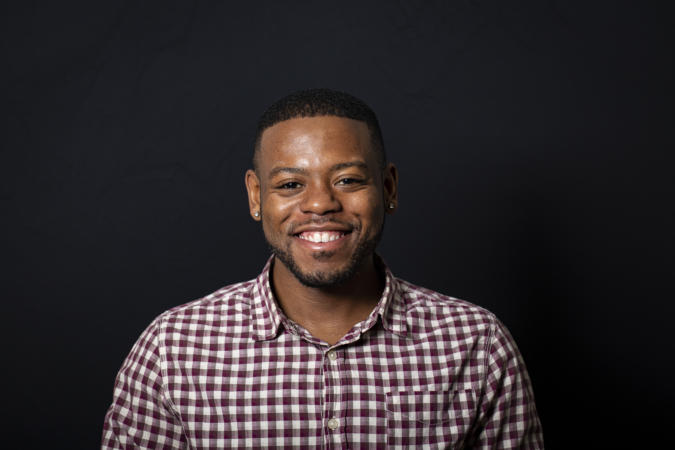
This piece has been edited since its original publish date of March 29, 2019. Persisting stigmas around mental health can make it difficult for Black youth to receive the help they need. They’re often forced to navigate misconceptions within their communities and anti-Blackness within the medical industry. One North Carolina based grad student is using tech to erase some of those barriers. Henry Willis, a PhD student at the University of North Carolina at Chapel Hill’s Clinical Psychology Graduate Program, is developing a mental health app for Black youth. Finding ways to provide Black youth mental health resources is an absolute necessity. Everyday factors of being Black — like exposure to racism — can drastically impact people’s mental health. This is something Willis himself noticed in his own research. “I’ve published papers that have looked at how things such as online racial discrimination can lead to increased PTSD symptoms, or how positive racial identity beliefs can lead...

This piece originally published on April 5, 2019. From doctors who don’t believe Black women’s pain to higher rates of maternal mortality to the infamous Tuskegee experiment , anti-Blackness within the medical industry is well-documented. This history can make it difficult for Black people to receive — or even want to seek — healthcare. Seeing Black doctors is one way many patients feel both comfortable and heard, but finding them can be incredibly difficult. Kimberly Wilson founded HUED to make that process easier. HUED is a healthcare technology startup that Wilson describes as the “for us, by us” version of ZocDoc. Through Hued’s website or mobile app, patients can find and book appointments with Black and Latinx healthcare providers. Whether you’re looking for a doula, therapist, or doctor, Hued plans to be people’s one-stop shop. HUED matches patient’s needs based on insurance provider, region, and specialty. In addition, patients can also access reviews about specific...
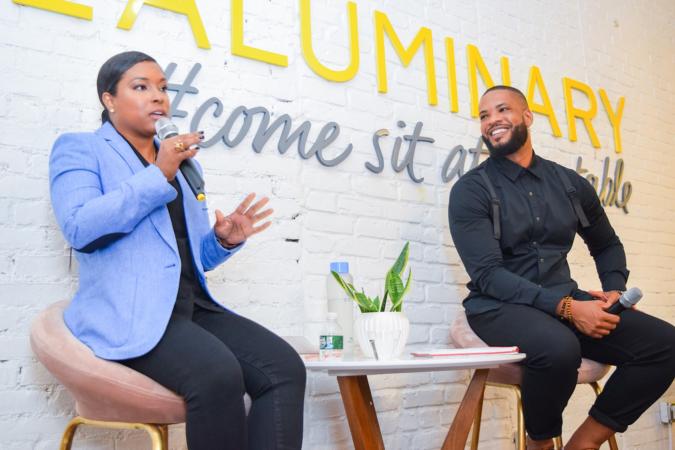
For many women of color, getting into professional settings is only half of the battle. From wage gaps to lack of opportunities for advancement, many women continue to experience combinations of racism and sexism. Although the tech industry is often thought of as a new haven, those same issues can be found here as well. A report by Reveal found that ten large Silicon Valley companies failed to hire any Black women in the year of 2016. It went on to refer to gender and racial disparities as “grave.” Meanwhile, Google’s 2019 Diversity Annual Report found that Black women “were not experiencing Google as positively as other groups.” Often, the advice given to women navigating professional settings ignores how the intersection of race impacts people’s experiences. With her new book, The Memo: What Women of Color Need to Know to Secure a Seat at the Table , Minda Harts sets out to end the one-size-fits-all approach to business books. Minda Harts Book Signing Photo Courtesy: Luminary,...
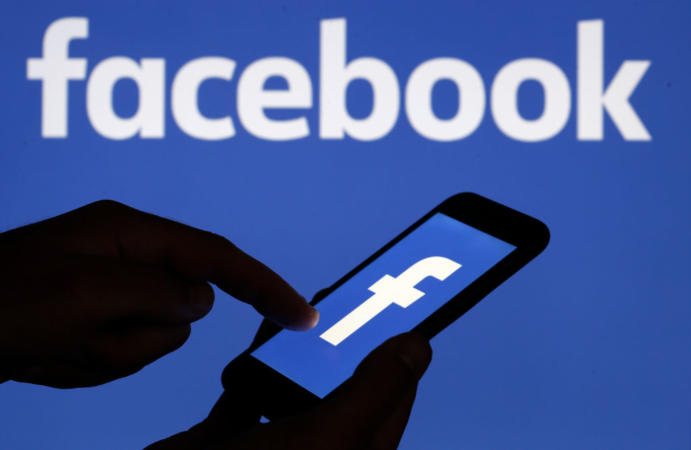
Thanks to ever-improving technology, people are now able to control a lot with their voice alone. From virtual assistants like Amazon’s Alexa to voice text options on your iPhone and messenger apps, you can search the internet, make calls, and more without much effort. Many people communicate freely with these devices, assuming that if anyone is listening, it’s only the people you’re messaging, but think again. On Tuesday, Bloomberg reported that Facebook paid hundreds of contractors to listen to and transcribe voice clips of audio from users of its services. The contractors weren’t told anything about the audio, including how it was obtained, which left many of them uncomfortable. Facebook did not deny the practice either. This isn’t the first time that a company has been exposed for allowing contractors to transcribe users’ audio without obtaining permission. Earlier this year, Time reported that Amazon workers listen in on Alexa conversations to transcribe and annotate what they...
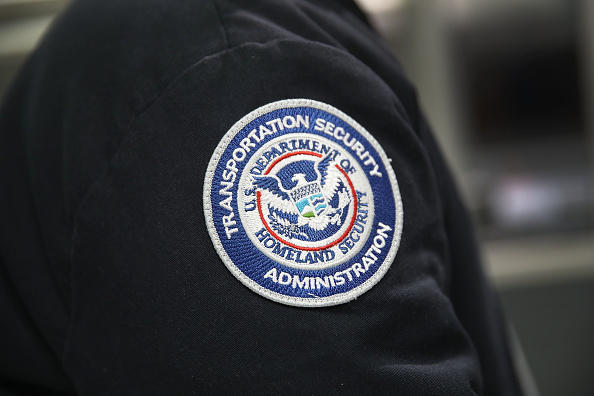
People are obsessed with finding ways to detect when someone is lying. This pursuit to analyze people’s bodies or expressions has led to government programs like TSA dropping billions on an unscientific “behavioral detection program.” Now, the United Kingdom-based startup, Facesoft is in talks with police in Britain and India about an AI system that claims to read the hidden emotions of suspects. Facesoft — which describes itself as industry leaders in face analysis technologies — used a “database of 300 million images of faces, some of which have been created by an AI system modeled on the human brain,” Bloomberg reported . The program’s purpose is to “identify emotions like anger, fear and surprise based on micro-expressions which are often invisible to the casual observer.” “If someone smiles insincerely, their mouth may smile, but the smile doesn’t reach their eyes — micro-expressions are more subtle than that and quicker,” the company’s co-founder and Chief Executive Officer,...
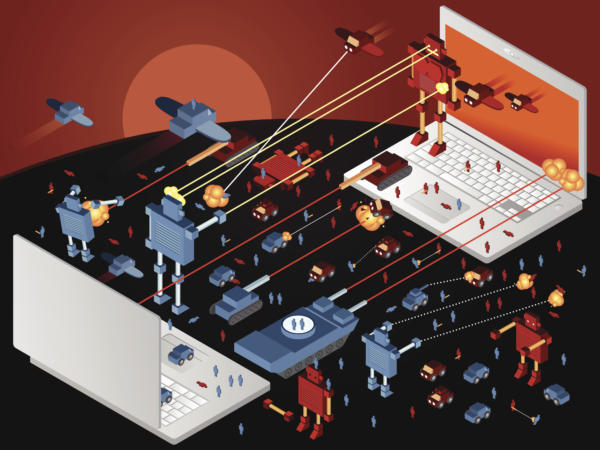
Wellness culture has continued to expand within the tech scene. From straightforward apps that help you track menstrual cycles to ones that guide you through meditation, tech has found multiple ways to address wellness. However, as the conversation continues to expand, the tech industry needs to turn a reflective eye inward. Wellness can’t be seen as just composed of individual choices. While apps and advertisements promoting “wellness” are great, what does that mean when some of tech’s biggest players run toxic sites? Earlier this year, a survey from the Anti-Defamation League found that 2018 was a record year for online hate and harassment. Over half of the respondents reported that they experienced hate on Facebook. Twitter and YouTube came in at 19 percent and 17 percent, respectively. This is big because when you ask people to name social media platforms, Facebook, Twitter, and YouTube are often names you’ll hear first. While anyone can experience harassment on social media,...

If you look through social media, grind culture is romanticized across platforms. This idea of always working, always creating, and doing so without giving yourself a break has become the “key” to success — just ask some of tech’s biggest names. “There are way easier places to work, but nobody ever changed the world on 40 hours a week,” Elon Musk tweeted, back in November of 2018. But if you love what you do, it (mostly) doesn’t feel like work — Elon Musk (@elonmusk) November 27, 2018 Here’s the thing: it doesn’t matter how much you love your job — it’s still work, which means you still need to take breaks from it. I have been writing since I was ten years old but I clock at least eight hours a day on my computer between my day job and freelancing. I’m not going to spend another eight hours working on different side projects. People often bring up celebrities or members of the one percent to guilt working-class people into throwing themselves in daily jobs or extra side hustles....

The tech industry and the products created by our largest companies aren’t easily avoided in your day-to-day life. The choices you encounter during your day-to-day life are largely created by algorithms that exist outside of you, like credit scores, and companies rolling out new inventions that re-shape daily life, like surveillance tools. When an industry is creating things that shape people’s lives, it’s best when someone who looks like you is in the room. Otherwise, you’re left with things like TSA scanners that perpetuate transphobia . In other words, the lack of diversity can engrain forms of oppression into new technologies, making them increasingly dangerous. The tech industry is aware that it has a problem. In 2017, Open MIC published a report on tech’s issue with race. After reviewing data from some of tech’s biggest players, the organization found that “Black people, Latinos, and Native Americans were underrepresented in tech by 16 to 18 percentage points compared with...
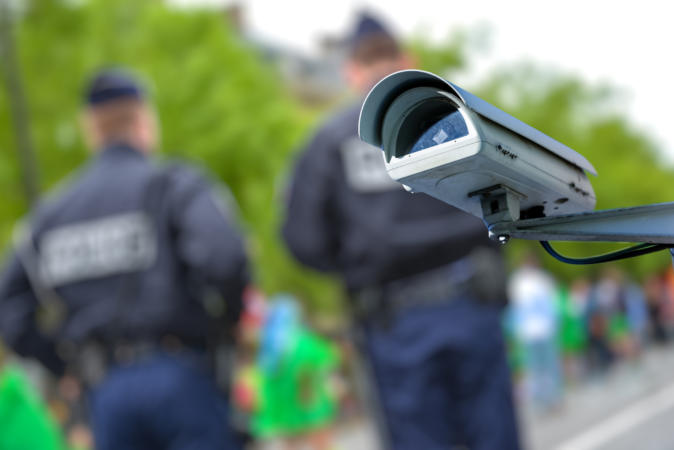
Facial recognition has been quietly unfolding across the United States for years. Now, increased public awareness has turned facial recognition into a hot political issue that may enter the presidential race. Earlier this month, Bernie Sanders became the first 2020 presidential candidate to call for a ban on police use of facial recognition technology. While some of the impacts of facial recognition cannot be reversed, its growing political significance may at least help communities of color escape some of its worst effects. Sanders’ position on facial recognition draws from bans that have occurred this year in San Francisco , Oakland, and Somerville, Massachusetts. In each city, activists focused on pointing out facial recognition’s potential for introducing widespread, mass surveillance of already vulnerable communities, like what may be occurring in the cities of Chicago and Detroit. A spokesperson for Sanders’ campaign told Recode: “Police use of facial recognition software is...
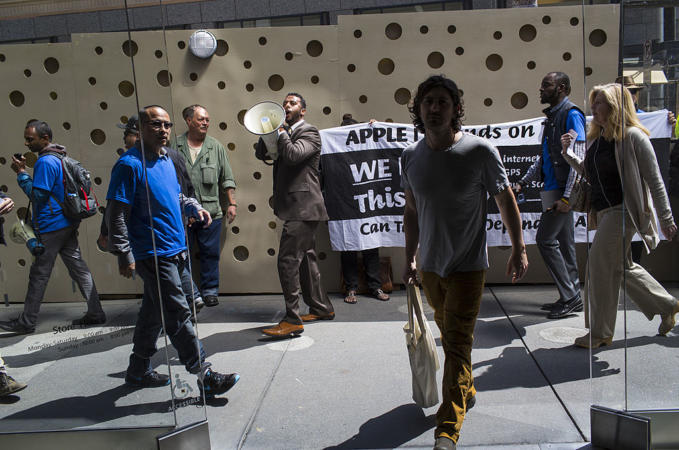
The United States is no stranger to labor movements. Throughout the country’s history, members of the working-class have organized in protest of wage cuts, dangerous working conditions, long hours, and more. Although remembrance of labor movements often focuses on white workers, Black activists were integral to shaping the labor movement . As a holiday, Labor Day has a complicated history, but it can serve as an important time to reflect on how labor issues show up in the present. While the tech industry is often thought of as a place where you go to get rich, that’s not the case for every worker. Tech workers are not just those who inhabit white-collar positions, but also Google’s contract workers , your Uber drivers, and DoorDash workers, who have been recently subject to a predatory tipping scheme. Essentially, the company used tips as a way to subsidize drivers’ base pay. As a result, there was a class-action lawsuit filed in May. “For example, if DoorDash promised the Dasher $5...
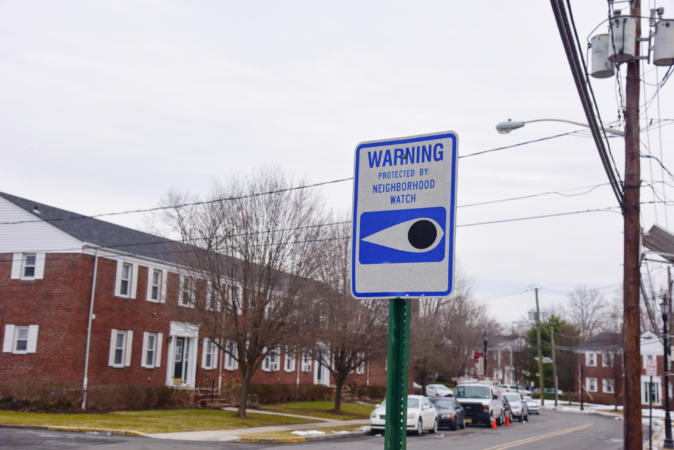
In February 2018, Amazon acquired Ring , a smart doorbell company in a $1 billion deal. Amazon followed that acquisition up only three months later by launching a new app called Neighbors through Ring. Describing itself as the “new neighborhood watch,” Neighbors is designed to allow users to receive real-time crime updates from their neighbors. On the surface, it seems like an innocent project. However, Neighbors is a strong example of how surveillance companies like Ring manufacture paranoia to sell back to you. Neighborhood watch relies on the idea that you never know what’s going to happen, so you need to remain prepared. By flooding phones with crime updates and nothing more, apps like Neighbors can create a feeling of unease that often relies less on facts and more on pre-existing distrust of people of color. As reported by Motherboard , videos posted on Neighbors disproportionately show people of color with descriptions relying on racist language or assumptions. After...
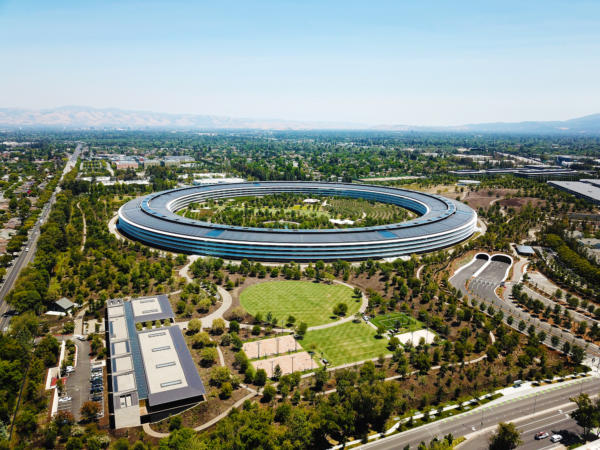
For the past few decades, Silicon Valley has been thought of as the heart of America’s tech industry. It now hosts the headquarters of thousands of tech companies, including Apple, Facebook, Netflix, and more. While Silicon Valley has dominated the scene, other cities are on the come up, as well . Atlanta, Georgia, Raleigh, North Carolina, and Austin, Texas are just a few of the communities more recently seeing their tech scenes begin to boom. However, as other cities transform into tech enclaves of their own, it poses significant questions about how to ensure the harsh consequences of Silicon Valley are not repeated throughout the country. “While Silicon Valley often makes headlines for innovative technology and disruptive ideas, local families are experiencing a very different kind of disruption: displacement from their homes,” Justine Marcus of the Urban Displacement Project wrote. Marcus also added: “Rents and housing prices have far outpaced relatively stagnant wages for...